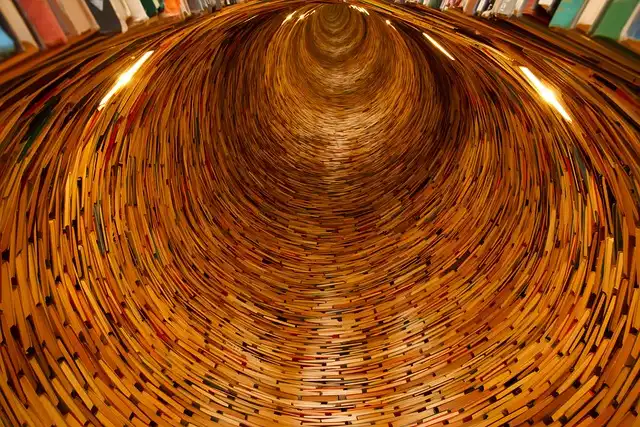Humanities in Crisis: Navigating a Turning Point

The humanities face a kρίσις, a turning point, amid declining support. Integrating liberal arts with STEM, adapting to evolving structures, and focusing on public enrichment are key to their survival and relevance.
For certain, some amongst us reject the indications of the time, yearning for the golden days when humanities divisions were ever before increasing, suggesting that an important 3rd Victorianist (concentrating on dramatization) be added to the coworkers currently concentrating on fiction and poetry. Some of us currently assert that the end of the humanities declares the end of humanity and human world. As the writers of WhatEvery1Says: The Liberal Arts in Public Discussion locate, “The humanities show up to the public to be siloed in colleges (unlike the scientific researches).”.
Integrating Liberal Arts
Given that the introduction of this brand-new type of liberal arts program, gotten in touch with such areas as service, design and medicine, the number of trainees learning the liberal arts at Arizona has increased by 76 percent. This true kind of integrated collaboration, and similar efforts at St. Anselm University, Virginia Technology and my home institution of Georgia Tech, give me wish for a turning factor– kρίσις– for the liberal arts in higher education.
Historical Context
I assume intellectual sincerity would certainly demand we keep in mind that it was the liberal arts, custodians of high-culture education and learning (Bildung), that once upon a time crowded out the used crafts, arts and innovations, implicating them of doing not have intellectual deepness. Humanistic Ivy Organization and Oxbridge colleges championed the classics, ideology and literary research studies as “liberal” and sneered at specialist education in the “mechanical arts” (engineering, farming, service, etc) as “servile.” When the liberal arts (and lives sciences) professors at these elite universities refused to open their classist “gentlemen’s education and learning” to bigger publics, land-grant colleges and technical institutes emerged to raise access and to enlighten lawyers, instructors and engineers.
I recommend we befriend the idea that our humanistic values and techniques might relate to even more public-oriented and alternative goals, as exhibited by the College of Arizona’s effective level in the public and used humanities, which wants “to translate the individual enrichment of liberal arts study right into public enrichment and the direct and substantial enhancement of the human problem” and uses a “basically experimental, entrepreneurial, and transdisciplinary” educational experience that “focuses on public and personal chances that straddle instead of fall in between purviews, or are confined by them.”.
In an existential dilemma, exaggeration in the protection of our area no more feels like a vice. Some of us now declare that the end of the humanities declares the end of humanity and human world. Brenna Gerhardt, for example, advised that, because of the 2025 financing cuts to the National Endowment for the Liberal arts, “we might discover that a culture that neglects to ask what it means to be human fails to remember exactly how to be one.”
We are like alms seekers, condensing our long-lasting training and knowledge into an ethics, civics and plan component required for our partners’ certification, or infusing technical writing and interaction abilities into a STEM curriculum to enhance their majors’ impact. They additionally make us really feel dreadfully supplementary.
Like a lot of my colleagues in art background, English, background, modern-day languages, musicology, viewpoint, rhetoric and adjacent fields, I am concerned concerning the existing situation in the liberal arts. Once again, as a student of the background of the modern college, I know that there have not been as well many years over the last 150 years during which we liberal arts scholars have actually not employed the term “situation” to depict our place in the academy.
Feeling helpless despite diminishing registration and assistance for our self-controls, some of us have actually resorted to digging up conspiracy theory concepts, perhaps because, as Stanley Fish believed, in the psychic economic situation of scholastic movie critics, “injustice is the indicator of merit.” The tenor of such virtue-signaling problems is that an unholy partnership of tech and business brothers and their programs, along with politicians and academic leaders, advertise only “beneficial” disciplines and crowd out interest in the humanities.
These kinds of well-meaning statements, and the hopeless day-to-day news item (ideally from Oxbridge) amplifying our importance and versatility, worry the academic liberal arts with a duty incommensurate with the instructional and social work we can do. Their insurance claim that “either you support the liberal arts, or inhumanity dominates” scares only us, but nobody else. As the authors of WhatEvery1Says: The Liberal Arts in Public Discourse locate, “The liberal arts show up to the public to be siloed in colleges (unlike the sciences).”.
Adapting to Change
Closer to fact, several colleagues in the humanities have actually been “climbing the cross of the minute,” adapting to the inversion of corrective power structures at our institutions and approving the required to show at the very least some quantifiable outcomes rather than our precious unquantifiable humanistic critique. We have been straightening with the new lead techniques by developing a huge framework of certifications, levels, journals, book collection and companies in the medical, health, digital, ecological and power humanities, in science and innovation researches, computational media, and music modern technology.
Crisis as Opportunity
Our Greek forebears, as early as Hippocrates, created the term “kρίσις” to explain a “turning point”; kρίσις, a word related to the Proto-Indo-European origin krei-, is etymologically attached to methods like “sieving,” “discriminating” and “judging.” The most commonly discussed ability we humanists provide our trainees, vital reasoning, originates from the exact same method of intentional “sieving.” Therefore, when we call ourselves doubters and write critical theory, we admit that crisis may simply be our all-natural habitat.
While I have compassion with Stables’s contact us to activity (though I would add Hannah Arendt, Simone de Beauvoir, Julia Kristeva, bell hooks and Judith Butler to his listing), I think it takes us back to the moment when the humanities aim to be “all breathing human passion far above.”.
Institutional critical plans that worship the worth of the liberal arts with terms like “cornerstone,” “core” and “heart” only grow our uncertainties, specifically when our spending plans don’t match the performative critical grandiloquence. From the middle ages with the 18th-century college, the liberal arts experienced the injury of being “handmaidens to theology” (ancillae theologiae), then the doctrinal master self-control. Now, innovation has taken faith’s location, and we are once again “enjoyable (yet basically insignificant) helpmeets.” Trauma redux.
The Value of Criticism
If the previous paragraphs really did not appear enthusiastic and resilient sufficient, please remember that my very first responsibility as a humanist is to be a movie critic, not a cheerleader. I believe that the humanities do have an important place in the ecological community of higher education and at each university, that integrating STEM and liberal arts practices enhances student success and leads to much better study and scholarship, that humanistic factors to consider contribute to a much more simply and benign globe, which we need to continue our vital work in core education.
A look at the handy statistics offered by the American Academy of Arts and Sciences suggests that this most current situation in humanities enrollments and degree completions is not such as the previous variations in our history, however a lot more fundamental. When that beacon of humanistic discovering, the College of Chicago, stops briefly Ph.D. admissions across all yet 2 of its liberal arts programs, we understand the situation is existential.
The modernist poet W. H. Auden, in his book-length rhyme about anxiety, wrote that “We prefer to be destroyed than transformed/ We prefer to pass away in our dread/ Than climb the cross of the moment/ And let our impressions die.” For sure, some among us deny the indications of the time, yearning for the gold days when liberal arts divisions were ever before broadening, saying that a necessary third Victorianist (focusing on dramatization) be added to the associates currently focusing on fiction and poetry. If these golden days ever before existed (in the very early 1970s?) , they are gone currently. Nostalgia for the simulacrum persists.
In a recent essay for the Journal of Theoretical Humanities, Wayne Stables takes us past embellishment. He asks us to envision our lives and function “as if the humanities were dead,” thus (he really hopes) freeing us to consider cumulative action based on the likes of G. W. F. Hegel, Karl Marx, Friedrich Nietzsche, Theodor W. Adorno, Michel Foucault, Jacques Derrida and Wendy Brown.
Nevertheless, I don’t assume that we academic humanists have adequate standing to make hyperbolic cases concerning what we can achieve. Simply consider: Have we ever before advanced how many majors and professors settings would suffice to maintain the globe humane and civilized? Have we, as Roosevelt Montás asks in Saving Socrates, ever overcome the “situation of agreement … about what points are most worth understanding”? And should we lecture our STEM colleagues on ethics and sex equity when, as recently as 2019, less than one-third of tenure-track faculty and less than one-fourth of non-tenure- track professors in U.S. approach departments were women?
Could it be that today’s humanists still preserve a few of this original hubris toward technological, employment and used training, which makes the existing inversion of corrective hierarchy even tougher to accept? Are warnings versus instrumentalizing the liberal arts for economic gain (Martha C. Nussbaum, Not for Revenue) or using them to sustain technological or vocational disciplines (Frank Donoghue, The Last Professors) mirrors of such hubris? Will this way of thinking, based upon the expertise economy of the late 19th century, encourage today’s students to work with us?
We humanists are truly efficient asking vital inquiries, “sieving,” “discriminating” and “judging” at the highest levels of abstraction, but we are not so efficient providing remedies. When we do, they commonly come from the same intellectual elevations that have alienated us from undergraduate populations and the public. In a current essay for the Journal of Theoretical Liberal Arts, Wayne Stables takes us beyond exaggeration. He asks us to envision our lives and function “as if the liberal arts were dead,” consequently (he hopes) freeing us to think about collective activity based on the likes of G. W. F. Hegel, Karl Marx, Friedrich Nietzsche, Theodor W. Adorno, Michel Foucault, Jacques Derrida and Wendy Brown. He believes this kind of “vital positioning” might assist us endure “the troubling interregnum” in which we currently locate ourselves.
1 academic disciplines2 accreditation system
3 affect higher education
4 critical thinking
5 humanities crisis
6 liberal arts
« Open Inquiry: Fostering Intellectual Curiosity & DiscourseUniversity Leadership Changes: Knoxville, Utah State, and More »
